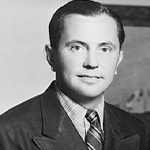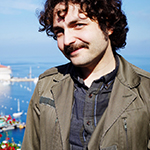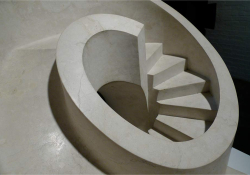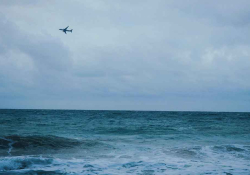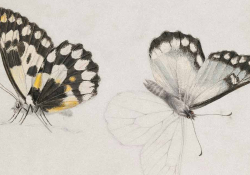Fish Pier, Santa Monica
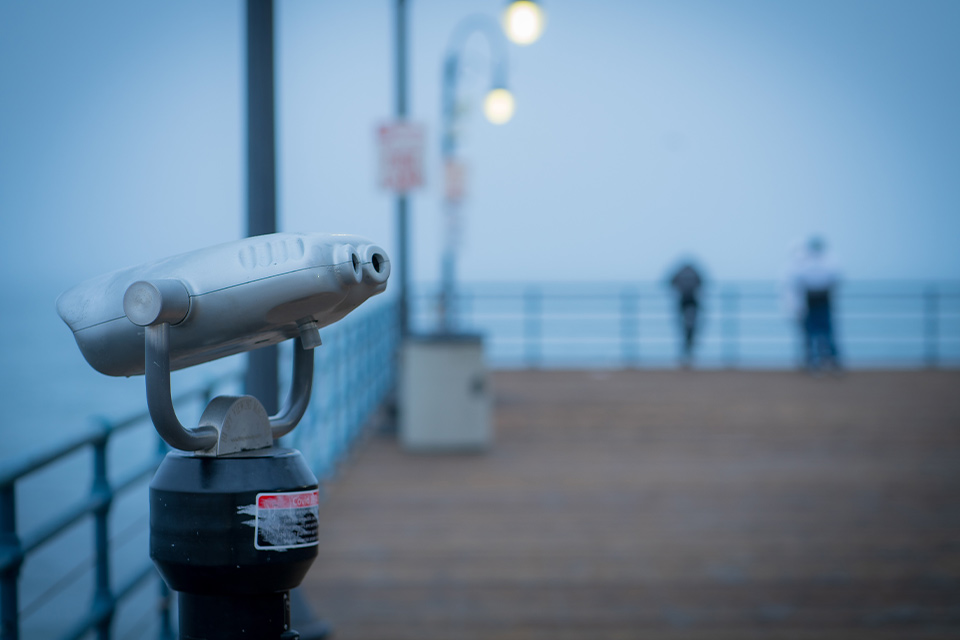
Look — Santa Monica,
so much like Italy.
Old friend, remember when
you and I lived down here?
See all those fish shops?
Here, come this way.
A huge orange lobster
squats on display,
beside two poor oysters
soldered together.
Fleet-footed seagulls
squawk in displeasure.
Plump as a cuttlefish,
a sailboat glides past.
A dripping-wet beauty
cries out for her dress.
Mischievous schoolgirls
glitter like caviar
and put me in mind of
how spry we once were . . .
A new crowd is forming,
in search of a prize —
cheap phony rifles
aim at bull’s-eyes.
Waves, wild and fizzy,
tumble ashore.
A bug-eyed cod slumbers
forevermore.
Lovers lie dozing
between the pilings —
kissing, embracing,
now silent, now sighing . . .
There’s Mrs. Hammersley,
still playing cards . . .
Ah, that harmonica!
Oh, that sweet piccolo!
Sing, Santa Monica —
let music flow . .
Translator’s Note
by Boris Dralyuk
Fans of the Great American Songbook know Vernon Duke (1903–1969) as the composer of the immortal standards “April in Paris” (1932), “I Can’t Get Started” (1936), and “Autumn in New York” (1934). The first two feature lyrics by Yip Harburg and Ira Gershwin, respectively, but the last is all his, words and music.
Not bad for a man who had only come to the United States just over a decade earlier. Duke, or Vladimir Dukelsky, was born to a noble Russian family in 1903, in what is now Belarus, and was trained as a composer at the Kyiv Conservatory. Displaced by the civil war, the family settled briefly in Constantinople—where the young composer, stretching his wings, founded a Poets’ Guild with Boris Poplavsky (1903–1935), one of the most original voices of the Russian emigration—before obtaining visas and setting sail for Ellis Island.
Soon enough, Dukelsky found his footing as a popular tunesmith under the name Duke (an abbreviation suggested by George Gershwin, né Gershowitz), but he continued to compose modernist classical works under his original name. What’s more, he continued to write poems in Russian—poems closer in spirit to “Autumn in New York” than to the surreal visions of his confrère Poplavsky.
Dukelsky was an essentially buoyant man, with a dash of ironic ruefulness—a mix of traits that comes through not only in his popular compositions but also in his autobiography, Passport to Paris (1955). It’s also evident in the title of his second collection of Russian verse, The Sorrows of Elderly Werther, which was published in Munich in 1962 but was mostly written in Los Angeles, where he lived happily until his death in 1969.
